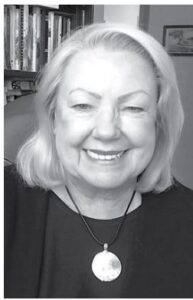
Dorothy Dobbie
The big news today, January 31, 2023, is that some drug addicts in B.C. will be now allowed to carry a minuscule amount of certain substances without being arrested. This is being heralded as a great breakthrough in dealing with drug deaths. That, in my view, is complete nonsense!
Making it not a criminal offense to carry a part of the drugs you need to survive every day will do nothing to curb use or prevent death. Period. It is a stop gap, political measure to make governments look like they are doing something – when they are not.
Even the amount being decriminalized is ridiculous and based on flawed averages, according to those who use the products – not that it matters much. It is doubtful that even before today, Vancouver police arrested people for having a small amount of drugs of any kind in their possession. It would be just too much trouble, too much a burden on the system, and pointless. And it is ludicrous to believe that they will be weighing small amounts of drugs they find on a person going forward.
Here is part of the problem: the drugs of yesteryear are not the drugs of today. While cocaine, heroin and morphine were bad enough, along comes crystal meth, a cheap high, followed by fentanyl, 50 times more powerful than cocaine and 10 times or potent that heroine, followed by carfentanil, that is 100 times more powerful than fentanyl and 10,000 times for potent than cocaine.
It doesn’t take a genius to see one flaw in the legislation – that 2.5 grams of cocaine is not the same as 2.5 grams of carfentanil or even fentanyl.
The other issue is that the fentanyl drugs are hard to detect, so other, less potent drugs are often laced with the more potent, more addictive substance, I suppose in the hope of getting people addicted more quickly but often leading to death. Contamination of the street supply drugs is a deadly problem that won’t be alleviated by some silly legislation covering what is undoubtedly already happening.
Karen Ward, a drug user and advocate in Vancouver's Downtown Eastside, put it this way: "The problem is they (drugs) are not illegal because they're dangerous, they are dangerous because they're illegal!"
The only way to deal with the issue of drug overdoses is to ensure that addicts have a safe supply. This means that hard drugs should be decriminalized, regulated, and made available to users through current distribution methods for regulated pharmaceuticals.
I know this won’t sit well with some of my more conservative friends but think about it this way: drug addiction is not a moral issue; it is a medical one. You cannot legislate people’s behaviours. We found that out a hundred years ago with alcohol.
If we decriminalize, regulate, and distribute hard drugs, will we still have drug addiction issues to deal with? Of course, we will, just as we still have alcoholism and obesity and all sorts of other self-inflicted medical issues, but we will have cut the illicit supply off at the knees, and allow the addicted to live in peace and dignity.

